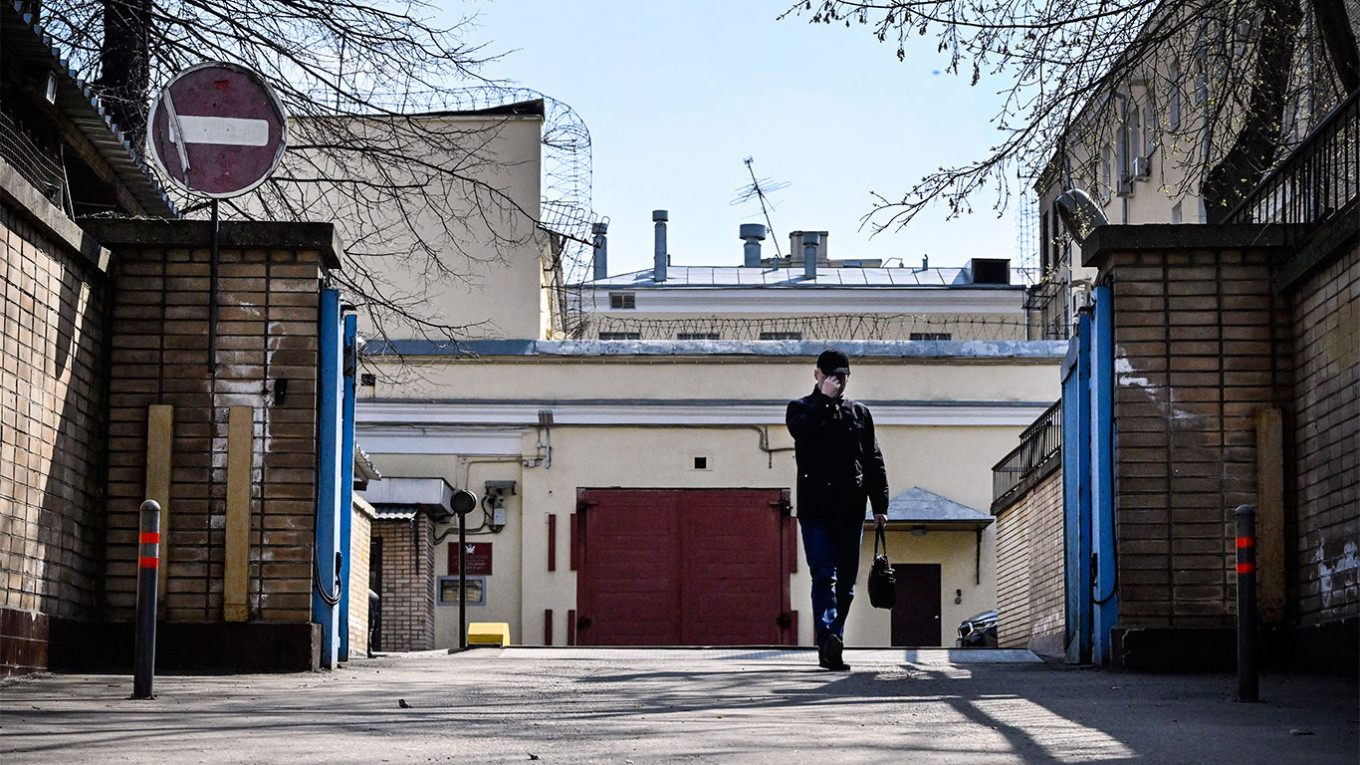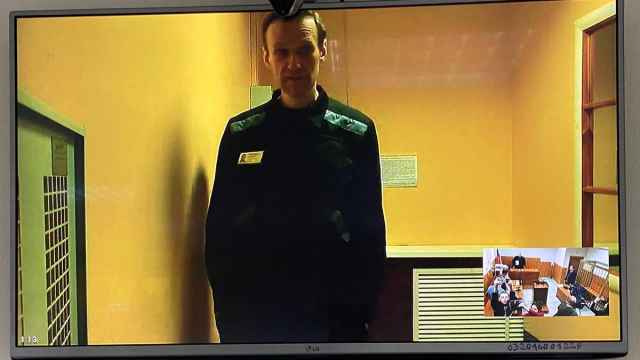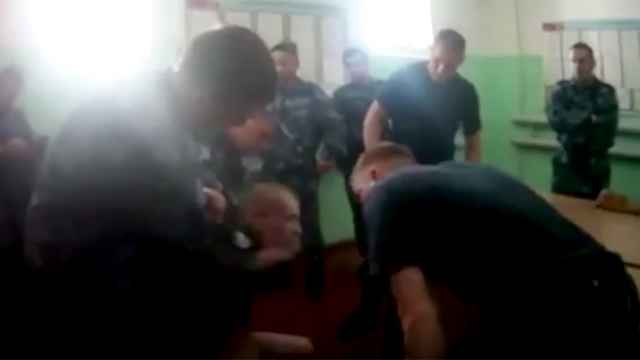Since his arrest on charges of espionage just over a month ago, Wall Street Journal reporter Evan Gershkovich has been held in Russia’s most notorious prison, Lefortovo, located in a leafy residential district of Moscow.
Its impenetrable walls once muffled the cries of Soviet-era political prisoners tortured and executed by security officers during Stalin’s purges.
While bullets no longer fly in Lefortovo’s holding cells, the prison’s central role in Russia’s system of political repression has remained unchanged.
“Lefortovo is famous for putting maximum psychological pressure [on inmates],” said Igor Rudnikov, a journalist and ex-local official who spent 10 months in Lefortovo in 2017 and 2018.
“The goal is simple: to break the detainee.”
Like other prisoners, Gershkovich, a former journalist for The Moscow Times, is likely experiencing extreme isolation in Lefortovo. According to former inmates and lawyers, he will have had to grow accustomed to unpartitioned toilets, lights that never turned off, visits by prison guards every four minutes and rare glimpses of the sky.
Used to hold high-profile prisoners, or those accused of the most serious charges, Lefortovo is filled with ex-spies, politicians, murderers and some of those accused under Russia’s widespread crackdown on wartime dissent.
The prison is de-facto controlled by Russia’s Federal Security Service (FSB), rather than the Federal Penitentiary Service that is in charge of the country’s correctional system.
Despite its reputation, guards at the modern-day Lefortovo no longer subject inmates to overt physical violence or verbal humiliation.
In fact, former inmates recalled staff being polite and never failing to wish prisoners a good morning.
“Investigators there are extremely polite. Everything in Lefortovo is very civilized,” said former inmate and chemical weapons program whistleblower Vil Mirzayanov, who was arrested on treason charges in 1992.
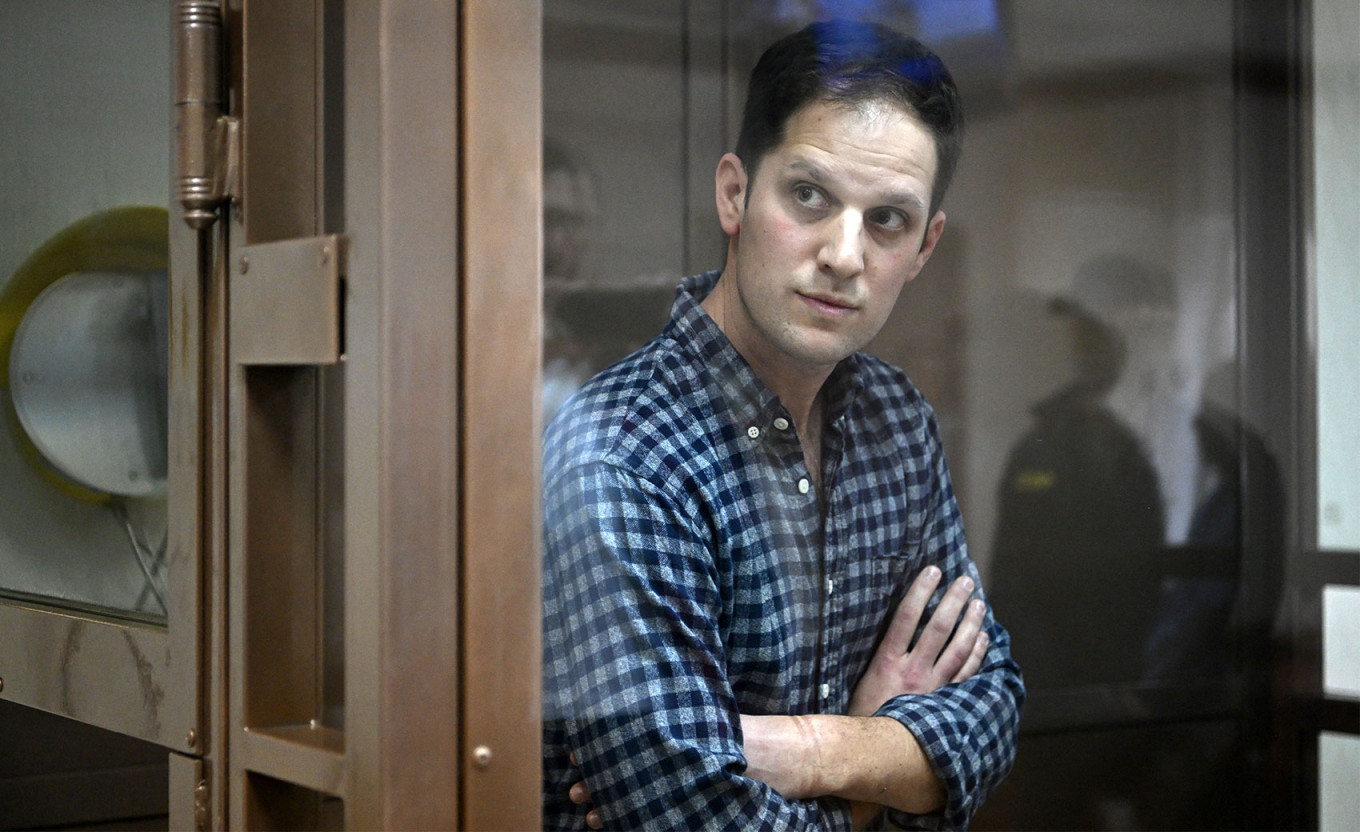
“But there is also complete isolation: no meetings, no news from the outside world.”
Extreme isolation was mentioned by all the former Lefortovo detainees who spoke to The Moscow Times about their time at the facility.
For inmates, their isolation begins immediately upon arrival at Lefortovo when they are placed in a single cell for a two-week quarantine.
“They sit alone in an information blockade for two weeks. There is a TV in the cell but it usually doesn’t work — I think that is done on purpose,” lawyer Ivan Pavlov, who has worked with dozens of people imprisoned at Lefortovo, told The Moscow Times.
Mirzayanov and Rudnikov vividly recalled the state of shock and horror they felt in their first days at Lefortovo.
“I’d already seen a lot, but that was very difficult psychologically,” Rudnikov said of the moment when he was stripped of his clothes and dressed in a black prisoner uniform.
Since Russia launched its invasion of Ukraine, Lefortovo has held prisoners including human rights activist Bakhrom Khamroev, top FSB officer Sergei Beseda and commanders from Ukraine’s Azov battalion who surrendered to Russian forces in the largely-destroyed port city of Mariupol.
The latest high-profile detainee to arrive at Lefortovo — a week after Gershkovich — was 26-year-old Daria Trepova, who stands accused of handing prominent pro-war blogger Vladlen Tatarsky a booby-trapped figurine that killed him when it exploded.
When inmates finish their two-week quarantine period, they are typically transferred to a two-person cell of about eight square meters.
While little information about Gershkovich’s stay at Lefortovo has been made public, he was likely moved out of quarantine in mid-March.
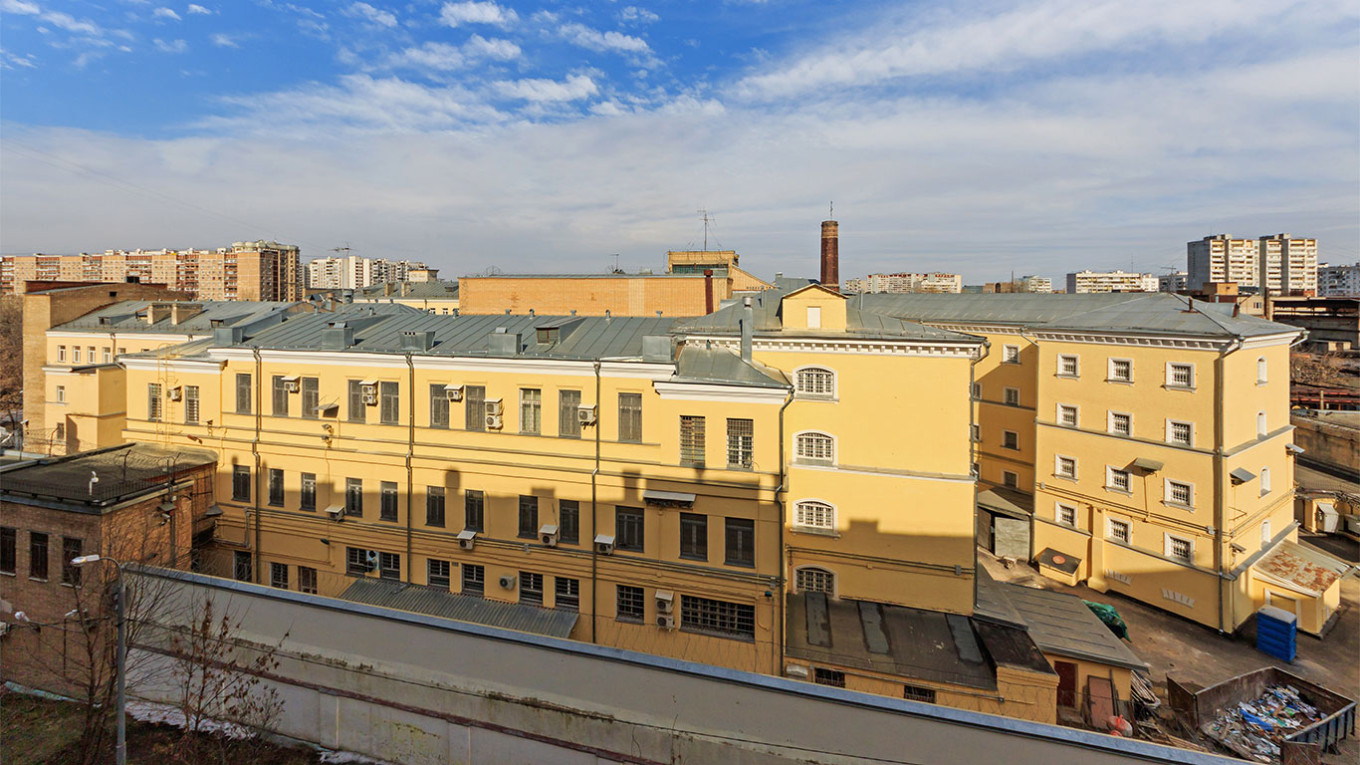
A small, tinted window with a double grill allows for almost no natural light to enter the room, while a weak electric light bulb is never turned off — even at night.
Sometimes, prison staff do not allow any mail correspondence to go in and out of the building, and meetings with a lawyer are rare.
“When I got to Lefortovo, I hadn't seen any letters for one-and-a-half-months,” Rudnikov told The Moscow Times.
“When I asked the guards about it, they just told me ‘that means no one is writing to you’.”
Gershkovich, however, has sent at least one letter to his parents since his transfer to Lefortovo — and he has reportedly been allowed to receive mail.
With about 150 inmates at any one time, Lefortovo has only six rooms for lawyer-prisoner meetings. Before the introduction of a queueing system, the lawyers handling cases of Lefortovo inmates used to get into physical fights with each other in an attempt to arrange meetings with their clients, according to lawyer Pavlov.
Inmates are also deprived of the opportunity to protest unfair conditions or treatment — such as going on a hunger strike.
Mirzayanov recalled being quickly transferred to a cell with two other inmates after declaring a hunger strike.
“They [prison officials] told me that no one outside will ever know that I am on a hunger strike. I quickly realized that in this complete state of isolation that kind of protest has no meaning, and so I started eating,” said the whistleblower.
The majority of Lefortovo’s cells have no hot water and most of the toilets are little more than a steel funnel.
Using these kinds of toilets is excruciating, according to former inmates.
With no partition between the toilet and the rest of the cell, cellmates turn away to face the wall and give some privacy for a person excreting just one meter away from them, according to Mirzayanov.
The prisoner who uses the toilet then usually sets a newspaper on fire in the hope that the smoke will smother the odor in the poorly-ventilated cell.
“It is so difficult to get used to it. I never did. It is absolutely terrible,” said Mirzayanov, comparing the experience of using the toilet to a “psychological attack.”
Few substantive changes are believed to have taken place in Lefortovo since the late Soviet period, when it housed famous prisoners including Nobel Prize winning writer Aleksandr Solzhenitsyn and U.S. News & World Report’s U.S.S.R. correspondent Nick Daniloff, the last foreign reporter to be accused of espionage in Russia before Gershkovich.
Today, as was the case decades ago, the only chance prisoners get to leave their cells are on trips to court hearings or during solitary daily walks on a rooftop or in a prison yard, separated from the sky by a grill.
While Rudnikov recalled meeting famous criminal leaders, former governors and even disgraced Investigative Committee officials in a police van on the way to court, Gershkovich’s trips to hearings are unlikely to be so socially engaging — those accused of espionage and treason are usually separated from other prisoners on such journeys.
While Mirzayanov said Gershkovich was unlikely to suffer any physical violence from guards, he would have to find ways of dealing with the isolation and squalid conditions.
“I wish him strength,” he said.
A Message from The Moscow Times:
Dear readers,
We are facing unprecedented challenges. Russia's Prosecutor General's Office has designated The Moscow Times as an "undesirable" organization, criminalizing our work and putting our staff at risk of prosecution. This follows our earlier unjust labeling as a "foreign agent."
These actions are direct attempts to silence independent journalism in Russia. The authorities claim our work "discredits the decisions of the Russian leadership." We see things differently: we strive to provide accurate, unbiased reporting on Russia.
We, the journalists of The Moscow Times, refuse to be silenced. But to continue our work, we need your help.
Your support, no matter how small, makes a world of difference. If you can, please support us monthly starting from just $2. It's quick to set up, and every contribution makes a significant impact.
By supporting The Moscow Times, you're defending open, independent journalism in the face of repression. Thank you for standing with us.
Remind me later.



